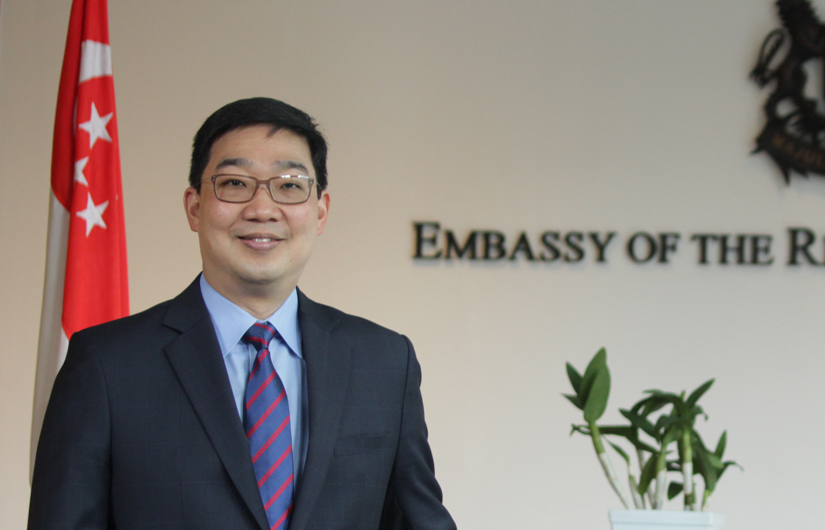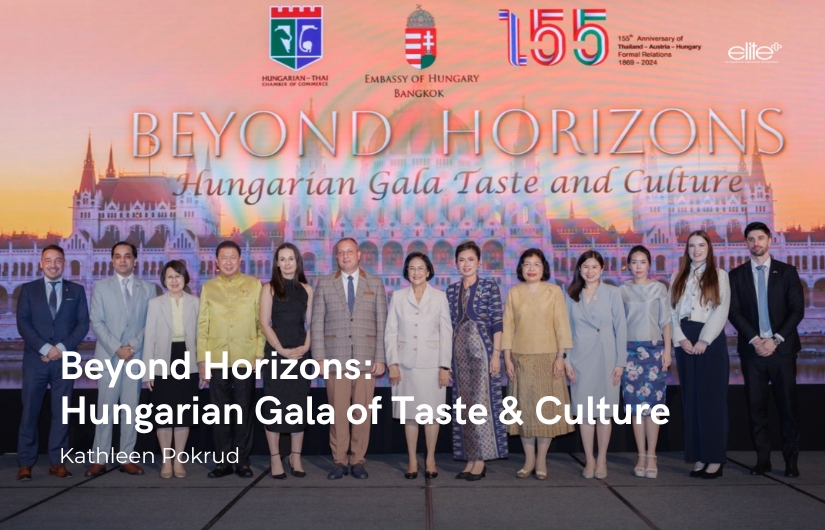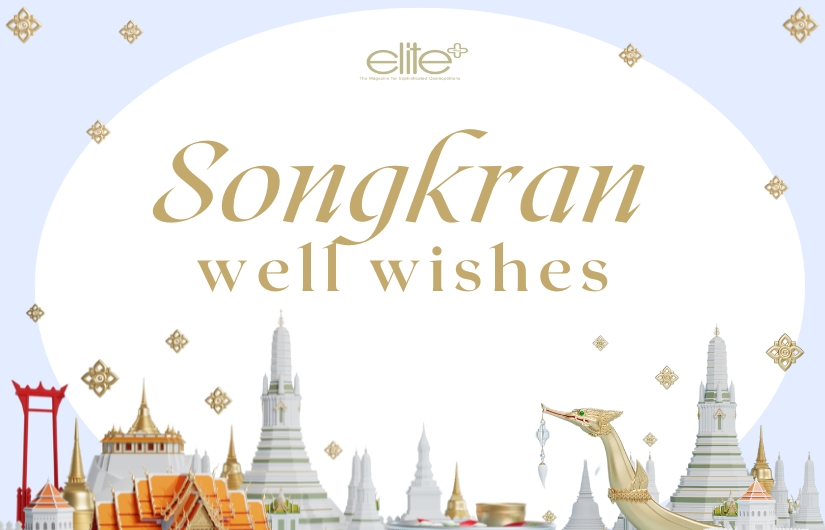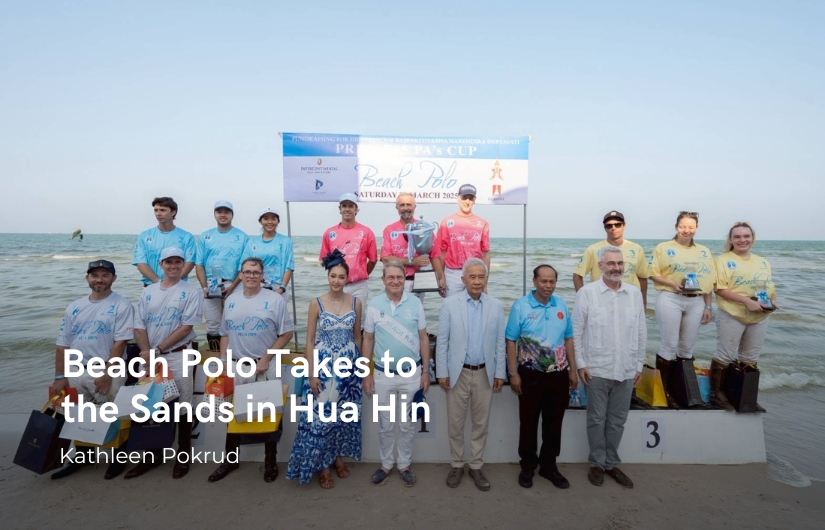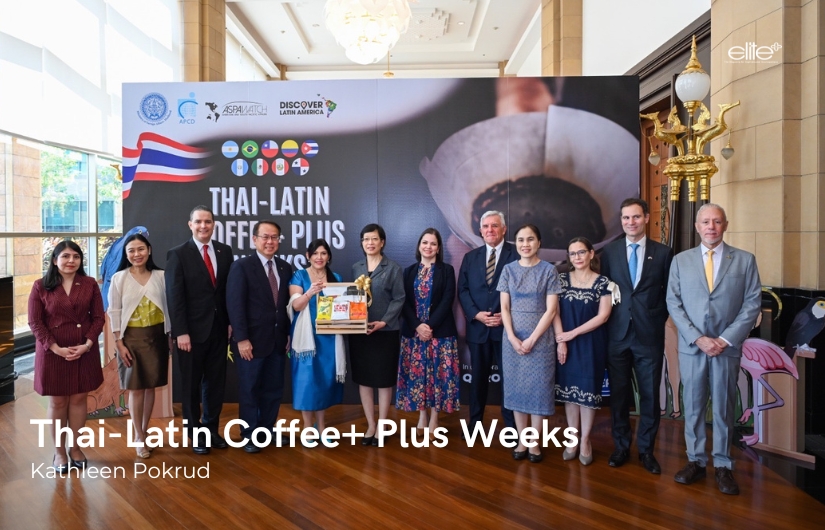Singapore colebrated its 56th year of Independence as well as the 56th anniversary of Singapore-Thailand relations on the 9th of August. Elite+ was thus very fortunate to recently have the opportunity to meet Ambassador Kevin Cheok and learn about the close bilateral ties between the two countries.
A second-generation career diplomat, Ambassador Kevin joined the Singapore Foreign Service in 1996, following in the footsteps of his father, who served for over three decades. He graduated with a Bachelor's Degree from Lafayette College in Pennsylvania and Master's Degree from Columbia University in New York. His overseas postings include Berlin as First Secretary, New York as Deputy Permanent Representative to the UN, and Kuala Lumpur as Deputy High Commissioner. Back home, he served as the Singapore Foreign Ministry's Director-General for Southeast Asia prior to becoming Singapore's Ambassador to Cambodia in 2013. In 2016, he was seconded to the Ministry of National Development to handle the Infrastructure portfolio before assuming the post as Singapore's ambassador to Thailand in 2019.
Could you give us some background of the diplomatic relations between Singapore and Thailand?
Singapore and Thailand are old friends and close partners. Thailand was the 6th country to recognise Singapore when we became independent in 1965. In fact, our ties go as far back as the 19th century when King Chulalongkorn made Singapore his first stop on an overseas trip in 1871. To commemorate the visit, King Chulalongkorn presented a bronze elephant statue as a gift to Singapore. That statue stands proudly at the entrance to our Old Parliament House, as a reminder of the long-standing friendship between our two countries.
Today, relations are multi-faceted and mutually beneficial. Bilaterally, we cooperate in a range of sectors, including trade, tourism, education and defence. Regionally, we collaborate in ASEAN while multilaterally, we work together in international organizations as Thailand and Singapore have a commonality of interests. In particular, we share similar views about the importance of free trade, ASEAN Centrality, and the need for a rules-based international order.
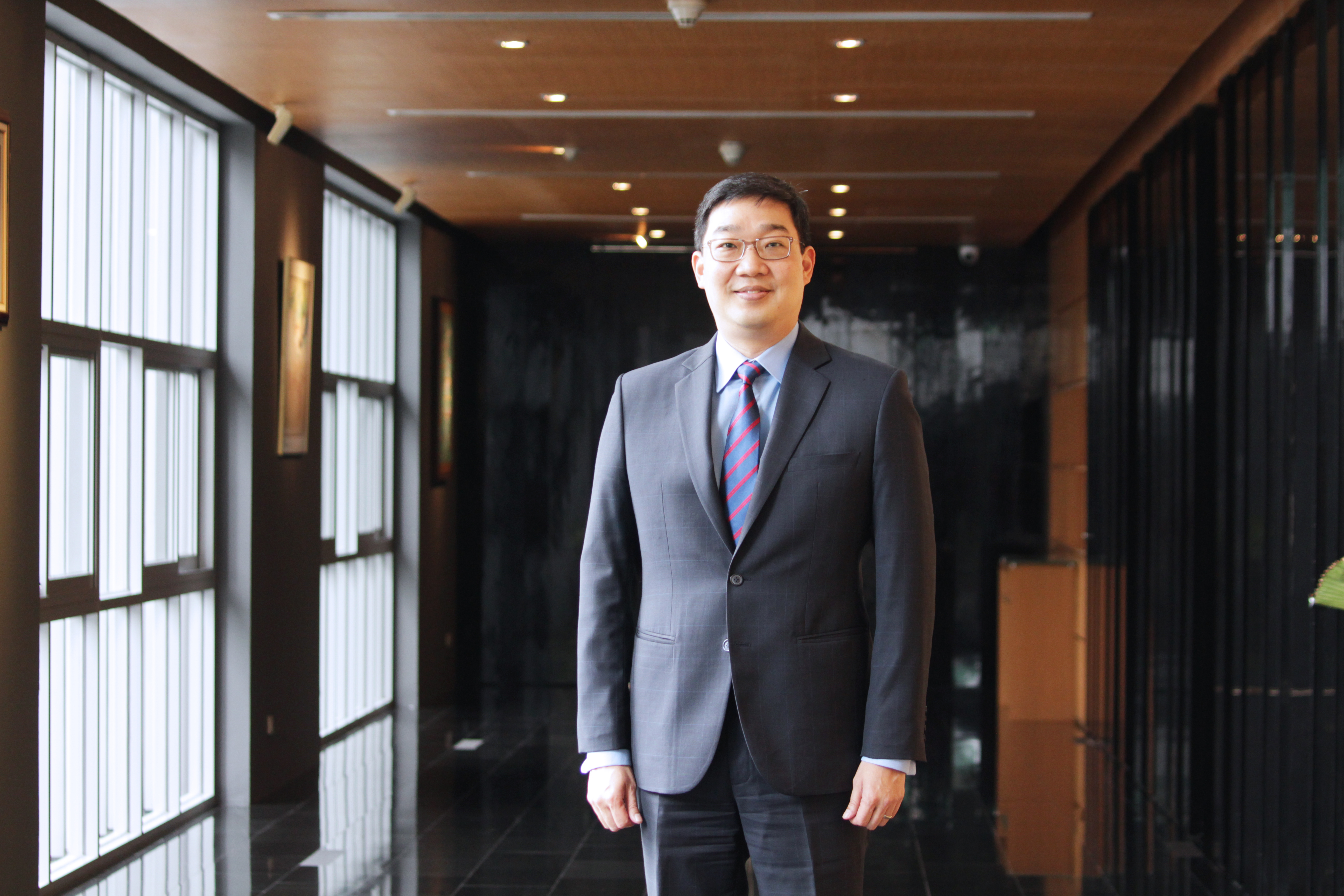
Which sectors, for example, trade, education and tourism, do you believe have been the most important and successful in Singapore-Thai bilateral relations?
We cooperate across many different sectors, and all these collaborations are successful in their own way. Bilateral trade was S$33 billion in 2020, an increase of 5% from the previous year. We are consistently among each other's top ten trading partners. Singapore is one of the larger foreign investors in Thailand. We were Thailand's 5th largest foreign investor in 2019 and 6th largest in 2020. Our investments are generally in financial services, manufacturing, wholesale trade and hospitality. You can also see many Singaporean brand names these days in banking, F&B, and transport and logistics. Thai companies have been increasingly active investors in Singapore as well. Meanwhile, our tourism links have been quite substantial. Prior to the Covid-19 pandemic, there were more than 300 flights per week between Thailand and Singapore. Over a million Singaporean visitors made trips to Thailand every year while half a million Thais were going to Singapore. These strong people-to-people links have been further buttressed by education cooperation. There are many collaborative activites among our students, teachers and institutions. These include exchange programmes, internships and scholarships for Thai students.
We have also anchored our cooperation through high-level institutional linkages. This includes the Leaders' Retreat between the Prime Ministers, the Civil Service Exchange Programme led by the Foreign Ministers and the Singapore-Thailand Enhanced Economic Relationship Meeting co-chaired by the Trade Ministers.
What advice would you give Thai entrepreneurs looking for business opportunities in Singapore?
I welcome Thai companies and entrepreneurs who are looking for business opportunities in Singapore or with Singapore partners. We have excellent infrastructure and connectivity. Singapore is a good place to live and work. We are business-friendly as can be seen in how we are consistently ranked among the top locations in the world for ease of doing business. For instance, it takes 15 minutes to register a company online and about a day and a half to set up a business. We also have a supportive ecosystem boasting a diverse pool of skilled labour, as well as strong research and innovation capabilities. In fact, Singapore has one of the fastest growing start-up communities in the world. The Embassy is happy to assist any interested Thai companies and entrepreneurs so please feel free to contact us.
The new coronavirus that led to the Covid-19 pandemic has affected all countries around the world. How has your country been coping?
Like all countries, Singapore has had to deal with several ups and downs. We had a big spike in cases in the second quarter of 2020, which led to the imposition of strict measures during a two-month "circuit breaker". We managed to reduce the numbers to just a handful of local transmissions between August 2020 to March 2021, but in April 2021, another wave hit us which resulted in another, albeit smaller, spike in local transmissions. We responded with tightened border measures and domestic restrictions, coupled with our comprehensive vaccination programme. By the first week of July, daily local transmissions were again down to single digits. Unfortunately, we are now seeing another wave of infections which has affected our ability to ease restrictions.
Over the longer term, Covid-19 will be endemic. So we will move to a new phase that focuses on vaccination, testing, treatment and social responsibility to transition to a new normal. Vaccination is a crucial part of this. As of mid-July, we have administered close to seven million vaccine doses. This means that about 75% of Singapore's population has received at least one dose, and about 50% are fully vaccinated. We aim had about two-thirds of our population fully vaccinated by early August, and we are especially focused on vaccinating more of our elderly. This will significantly boost our efforts to progressively re-open. Increased testing is another important element. We are working now to make testing quick and easy through rapid antigen tests, home test-kits, and new testing systems. This will help ensure that events and social activities can take place safely.
Covid-19 has had a big impact on Singapore's economy. In 2020, our GDP contracted by 5.4%, but measures like the Jobs Support Scheme helped cushion the impact for businesses and individuals. We are also taking the opportunity to transform our economy through new frontiers.in/digital ispaces and sustainable development. Our GDP is projected to grownd between 4-6% in 2021.
Singapore is still in lockdown; how is this affecting relations between Singapore and Thailand as well as ASEAN?
Our relations with Thailand remain excellent. In fact, we have cooperated well during the pandemic through information exchanges and mutual donations of medical supplies. That said, Covid-19 has disrupted the old ways of engagement. We have had fewer opportunities for physical meetings, and so we have had to adapt, for example, increasing our use of video conferencing. Political leaders and officials now "talk" virtually. Many of my meetings in Bangkok are now online. Last year, we convened political consultations between our two foreign ministries online. Personally, I am old-fashioned and prefer physical meetings, but virtual interactions allow us to continue our engagement despite Covid-19.
ASEAN has also adapted, with many of its meetings - political and working level - now being held online. There have been a few exceptions, like the ASEAN Leaders' Meeting in Jakarta in April and the Special ASEAN-China Foreign Ministers' Meeting in Chongqing in June, which were both held face-to-face.
What about cultural collaboration? What activities have there been in the past, and what types of exchanges do you see in the near future and long term?
Cultural collaboration is an important and enduring part of our relations. Singapore's National Gallery has an MOU with the Fine Arts Department of the Thai Ministry of Culture. Singapore's National Gallery also displays Thai artwork in its permanent exhibitions. In 2018, the Singapore Dance Theatre performed excerpts from classical ballets at Bangkok's 20th International Festival of Dance and Music. The Singapore Writers Festival 2019 featured Thai novelist Duanwad Pimwana. The Embassy has been active in promoting cultural events. In early 2020, we sponsored a concert by the Jazz Association Singapore Orchestra led by Singapore's "King of Swing" Jeremy Monteiro. The performance included Thailand's amazing saxophonist Koh, Mr Saxman. In 2019, we co-sponsored a performance by Singapore maestro Wong Kah Chun to guest-conduct the Thai Philharmonic Orchestra. Unfortunately, Covid-19 has affected our plans for new events, and we hope to do more when conditions allow.
You and your wife have been posted to Thailand for over two years; what has most impressed you?
First is the warmth of the Thai people. They have been so welcoming and kind, making my wife and I really feel at home here. Second is the resilience and caring nature of the Thai people. This has been clear in the way that Thais have banded together to help each other get through the Covid-19 pandemic.
Before the lockdown, did you do much traveling in the country and around the region? If so, what has impressed you? What lasting memories do you think you will take with you when you leave? One goal of mine is to travel extensively in Thailand to learn about the country and its people. Covid-19 has constrained my ability to do so. I have visited Chiang Rai, Pattaya, Hua Hin, Pranburi, Ayutthaya, Phitsanulok, Khao Yai, Udon Thani, Khon Kaen, Chantaburi, Kanchanaburi, Chonburi, Chiang Mai, Samui, Phuket and Kuiburi. What I find impressive is the sheer variety of experiences offered by Thailand. There are so many things to see in the different provinces. You have it all- wonderful beaches, temples, scenery, national parks, caves, cities, towns, mountains, rivers and islands. Each province has an amazing local culture and delicious regional specialities. There are even similarities with my home. For example, Phuket Old Town has a strong resemblance to parts of Singapore and similar food offered by the Peranakan culture. It's just fascinating and fun to discover all of this.
Do you have any final remarks or recommendations you would like to share with our readers?
I feel that Thailand and Singapore can do much more together. We are familiar with and positive about one another. There is complemnentarity in our econamies and in our strengths. We can find more ways to collaborate. This is especially true in future-oriented fields, like fintech, digital economy, cybersecurity, the environment and energy. There are so many possibilies. If any of your readers have more ideas, please reach out to us.


